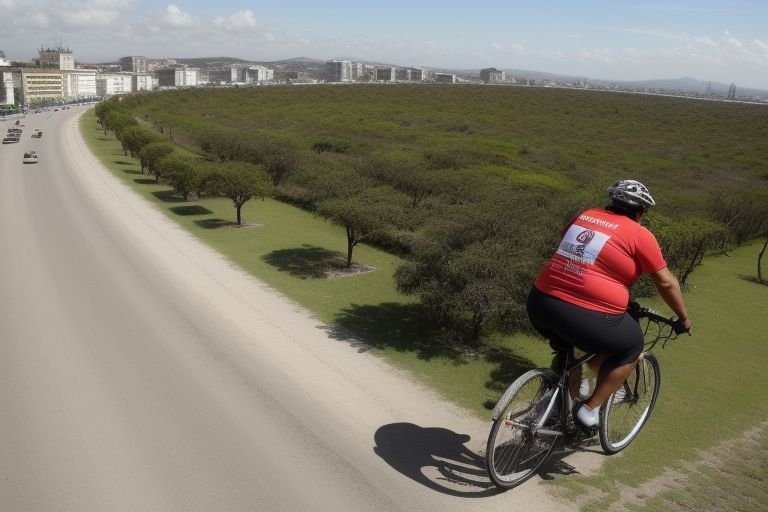
Mexico Launches Campaign To Combat Obesity
The Mexican authorities have introduced a complex multilevel program for combating the aggravating obesity problem all over the country. The programme has been unveiled by the Ministry of Health today and it is the plan to encourage the people of the country to live healthier life and to decrease the rate of people affected by the diseases such as obesity.
Mexico has a long history of high obesity levels, and new research suggests that currently 68% of adults are now classified as overweight or obese. This has resulted in high incidences of new diseases such as diabetes and heart disease, among others, thus becoming a great strain to the country’s health sector.
The new campaign, titled “México Saludable” (Healthy Mexico), will focus on three key areas: nutrition education, physical activity promotion, and Implementing effective policies to support healthy food. Health Minister Dr. Carlos Alonso Pérez emphasized the urgency of the situation, stating, “We must act now to reverse this trend and improve the health of our nation.”
The programme forms one of the major parts of time-based campaign where people will be educated on the best practises of meal preparation and balanced diet. All these programmes are to be launched in our schools, centres, and workplace so on across the country. The government has enlisted qualified nutritionists and health professionals to help in designing age appropriate lessons that would interest children and the adults as well.
Besides education, the campaign will focus on getting more active among Mexicans of all ages. What’s even encouraging is the Ministry of Health has stated its intentions to acquire more open spaces to be turned into parks, walking paths, and common usage of sporting amenities. Efforts will be made to ensure that local governments set aside time and money to stage fitness activities and events meant to enable citizens to adopt a more active lifestyle.
A significant aspect of the “México Saludable” initiative involves policy changes aimed at making healthier food options more accessible and affordable. The government is now proposing to impose even tighter controls over how the products must be labeled, notably making the nutritional value blurb as clear and simple as possible on packaged food. Furthermore, there will be higher taxes on sweetened beverages and other ultra-processed foods, and all the money gathered will be channeled to provide incentives for purchasing healthy produce.
The campaign has received support from different groups in society such as health care givers, teachers, and leaders in our society. Dr. Maria Fernández, a prominent obesity specialist at the National Institute of Medical Sciences and Nutrition, praised the initiative, saying, “This comprehensive approach addresses the root causes of obesity and has the potential to make a real difference in the health of our population.”
However, some opponents point out that the campaign is actually insufficient to do something with the socioeconomic factors that cause obesity. José Ramírez, a public health researcher at the Autonomous University of Mexico City, commented, “While education and promotion of physical activity are important, we must also address issues of food insecurity and poverty that often lead to unhealthy eating habits.”
These concerns have been addressed by the Ministry of Health, and the campaign is said to change as the years progress with research done and feedback given by the public. Dr. Pérez emphasized that “México Saludable” is a long-term initiative that will require sustained effort and collaboration across all levels of society.
During the campaign announcement the government has lined up several large food manufacturers on agreeing to lower the levels of sugar, salt and unhealthy fats. These companies have agreed that in the next five years they will have to make slow changes to recipes to suit new nutritional standards.
The “México Saludable” campaign is set to roll out in phases over the next six months, with initial efforts focusing on major urban centers before expanding to rural areas. There is a vast amount of money invested in the governmental promotion and advertising of the programme, in addition to funds for covering the costs of community engagement and necessary constructions.
People have endorsed the campaign’s message applauding it as something that other citizens should emulate in their quest to make alterative to the current heath sector. However, some doubt whether a government can efficiently conduct such a program on this scale.
On this ambitious path towards fighting obesity, the whole world shall see how Mexico goes about it. The success of “México Saludable” could provide valuable insights for other countries grappling with similar public health challenges. Mexico is trying to turn the obesity situation around with determination, cooperation, and continuous action, and as a result, it is giving its population a fighting chance at a healthier fate.


